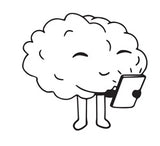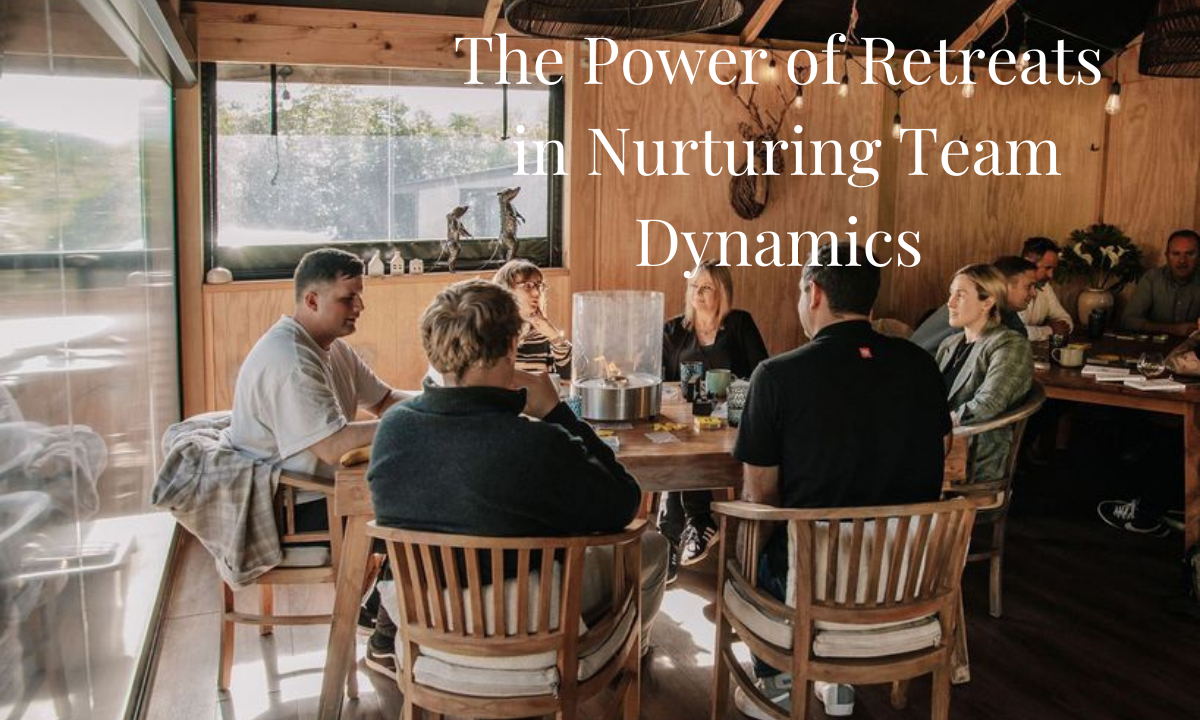
Our Distracted Minds – Goal interference, digital distraction and brain damage.
- Attention: Attention is the behavioural and cognitive process of selectively concentrating on a discrete aspect of information while ignoring other perceivable information.
- Distraction: Distraction occurs when we shift our attention to other information we’re perceiving, that we do not want to be paying attention to.
- Attention Residue: Attention residue is when thoughts about a task persist and intrude while performing another task
It might be said that the brain damage bit is a little dramatic, but we are most definitely altering our brains with digital distraction.
Let me share some uncomfortable data:
Source – The Distracted Mind – Ancient Brains in a High-Tech World – Adam Gazzaley & Larry D. Rosen
- 50% of young people clinically suffer from no-mo-phobia (fear of or anxiety caused by not having access to their mobile phone)
- 100% of young adults suffer or have experienced Phantom Pocket Vibration Syndrome
- In the average office you experience an average of 5 minutes between interruptions
- On average we check our phones every 5-7 minutes (up to 150 times a day)
- There is less than a 1-minute response time to electronic messages
- 90% of people believe they can multitask. Actual performance data disproves this
- People conversing say there are lower levels of trust, closeness and empathy when a phone is in direct sight during a conversation
- 60% of the adult population suffer some form of sleep deprivation due to exposure to blue light and dopamine addiction
- 96% of young adults suffer some form of sleep deprivation due to exposure to blue light and dopamine addiction
- 1 in 3 teenagers between the age of 13 and 18 suffer from clinical anxiety disorder
- Approximately 20% of the adult population suffer from anxiety, an increase from 9% in 2001 (WHO)
Why are we so easily distracted?
The fascinating thing about the human brain is that it has a natural bias to be curious about seeking constant and new information. Why? The more information we have, the better we can assess and mitigate danger. But our primal brain is at the crossroads with technology availability as we’ve never experienced it before. And we are exposed to both external distraction (events) and internal distraction (worry or anxiety). We seek constant distraction, but it leads to cognitive overload (overwhelm). Go figure.
Is this familiar to you?
“You’re driving along, looking for an address in a part of town that you’ve never been to. You’re actually running a bit late because you answered your cell phone (external distraction) just as you were getting in the car and then realised you’d forgotten your presentation. So, while you were talking to a client, you shot back upstairs and grabbed your forgotten folder.
Finally, back in the car, and now running late (external distraction) you’ve actually got a nagging feeling (internal distraction) that you don’t remember much of your last conversation and you’re not sure if they said the 8th of August or 18th of August and if it was two or three widgets that they wanted. Just then your cell phone vibrates (external distraction). You choose to ignore it.
New thought: you’re wondering who it was that called, (internal distraction) and why they’d be calling at this time of day. A sense of worry settles; you now feel anxious in case it was school about your children or that ‘person’ who you needed to sort something out with. And then you realise you’ve driven past the off ramp that you needed, so you grab your mobile phone to check google maps (external distraction) to search for the alternative route.
Sound familiar? This is coined as goal interference with cognitive overload. You are officially driving dangerously on the road, distracted and unable to focus on any of the tasks you’re trying to do. You had a single goal, but multiple external and internal distractions ‘interfered’ with your achieving that goal. There’s a new Trait that’s been identified to categorise this.
Attention DeficitTrait. (Not Disorder.)
The American Psychological Association is exploring the term Attention Deficit Trait. Unlike ADD that has links to genetics or neurological stems, Attention Deficit Trait is linked purely to environmental stimuli or overwhelm.
ADT: ADT is the persistent state of information overload generated in the digital world-leading to loss of focus.
ADD: ADD is a neurological disorder that has a genetic component and can be aggravated by environmental and physical factors.
Overwhelm: Overwhelm is influenced by high cognitive load, destroying the flow triggers by the challenges and skills balance being way out of whack driving excessive norepinephrine and cortisol into the system and blocking us from flow
Meet Manic Mike or Manic Marcy. MM. This person is constantly drumming their fingers on their desk, while talking on the phone and answering emails at the same time. Their knee is jiggling up and down like a jackhammer and they are constantly chewing their lower lip while reaching for their constant companion - their cold cup of coffee or their energy drink.
MM is so busy multitasking that they’ve forgotten the managers meeting that they received an email reminder to 15 minutes prior.
Though they share an office with another manager, neither of them feels that they are actually communicating, as they are working flat out, just to stay afloat. They just don’t get an opportunity to speak to each other without a phone ringing, an email arriving or a team member popping in for 30 seconds.
Does this feel familiar to you? Is this you?
If you are in a world of continuous information overload, always being in a rush, attempting to multitask, running from meeting to meeting, texting under the table or from the toilet, answering emails from the bathroom in the morning, and at day’s end, experiencing an immense sense of frustration and dissatisfaction – you are likely to be experiencing Attention Deficit Trait.
Check list
- Distractibility – you are exposed to too many ‘data’ points at any one time, juggling multiple things in the same time period
- Sense of internal frenzy – feel out of control, lacking control, anxious
- Impatience – at the traffic lights, with your partner, children, or peers, with yourself
- Guilt – not doing any one thing well
- Curt – you don’t have the energy for nice and there are so many stupid people in the world – you’re often thinking, “do I look like your mother?”
- Unfocused – too much to think about and lacking a plan
- Have the burning desire to buy someone a pot plant and make them carry it around to replace the oxygen they are stealing
- All the while pretending everything is fine – “what choice do I have?”
When you sit in this state for an extended period of time, the frontal lobe of the brain can’t keep up. The brain defers to the primal part firing the limbic fight or flight response.
Basically, you’re buggered. Creativity declines, logic declines (stressed = stupid), health declines (blood pressure up), and so we enter the cycle of Shiteness…. Overwhelm is real and incredibly unhealthy.
So, what should you do about this?
Take it seriously. It is very likely that you are both mentally and physically unsafe if you feel a constant sense of overwhelm and a lack of choice and control in your world.
I can help you.
If you’d like to get off the hamster wheel and gain a semblance of control in your life, please keep an eye out for my new bookDream, Plan, Do, Be and my associated Planner,Plan It, Do It.

Watch for the October and November planning Retreats hosted at my luxury off grid retreat, Arete.
We’ll spend two days understanding the neuroscience of high performance and planning, personalizing your planner and daily rhythms and defining what your daily routine will look like; we’ll plan your year, define what success looks and feels like for you, and introduce skills and tools to allow you to decrease your inessentials and increase your essentials. Refresh, refocus, re-engage.
You will be able to:
- Articulate how you want to feel each day, both personally and professionally and use this as the driver to implement systems and establish your daily rhythm.
- Understand the neuroscience of that rhythm and why you need to implement the Four Unicorns in your life and office.
- Have a plan of how to start the journey towards a controlled day i.e. which end of the elephant to start at and how to start eating it.
- You’ll rub shoulders with self-discipline and give her a nudge. Self-discipline is consciously taking control of our behaviour, also known as ‘being a grown-up’.
- Feel that you have gained 20% more control of your day, thus accomplishing more and reducing your stress. We are only looking for eight hours a week of planned activity that you have absolute control over.
- You will no longer feel like you are pushing a wheelbarrow with rope handles.

Right Now - L4 update
Today, it’s time to sit and re-evaluate how we want to feel. Spend just 30 minutes
and turn off the phone, turn off the computer, lock up the children and the dog, close the door, put away any distractions and grab a piece of paper and write the following down.
I want to feel....
Not what you want to achieve, or what your values are, but right now, how you want to feel. The next step is to spend time articulating 3 small steps for each feeling, that you can implement right now, to start on that journey.
- Control - clean your office, clean the kitchen bench
- Safe - look around you, check the kids, the dog, your relationship. Start a budget to make sure you’re ‘safe’ financially, if it’s dodgy, take action to make a financial plan
- Happy - write down 3 things you love doing, watch a movie, read a book, go for a walk, plan those little things that will contribute to that.
While you’re at home, the piece of gold that we own is to concentrate on others in our home and in our lives and then secondly work on the things you actually have control over.
Write down today, the three things you are grateful for. Your family, your friends, that it’s not raining today, that we are safe at home, whatever those things are that you can identify as ‘today’s, things to acknowledge and realise how blessed you are. Just start there, and do the same tomorrow and the day after. Be well, be gracious, seek joy.
I’d love to hear from you if you need an ear for some support
sally@sallyduxfield.com




